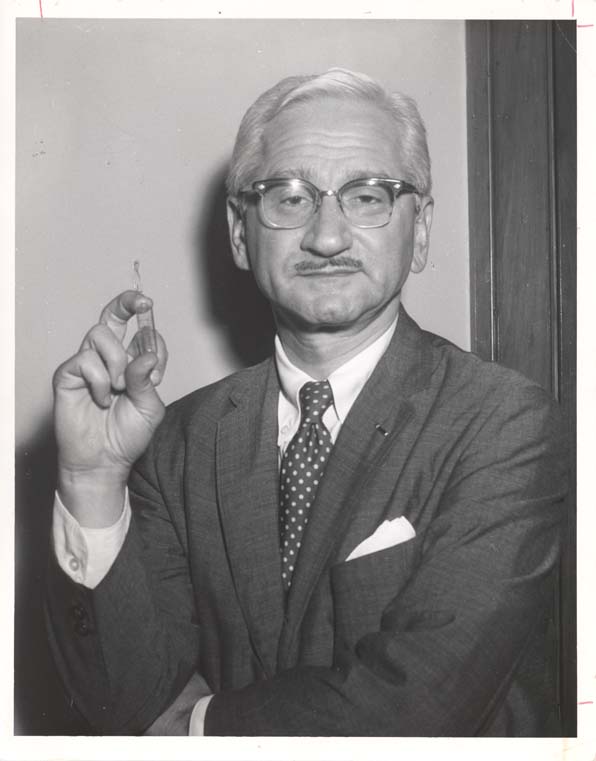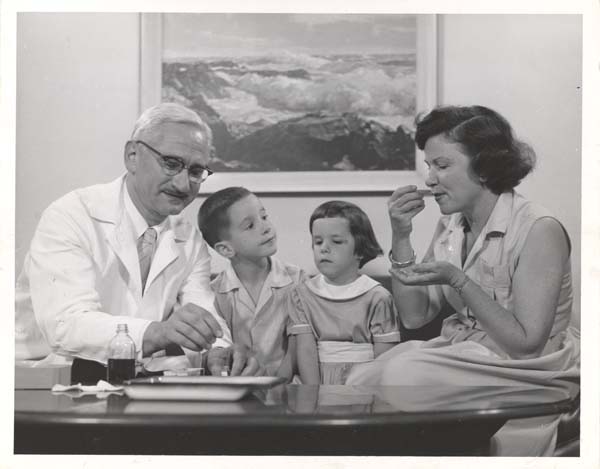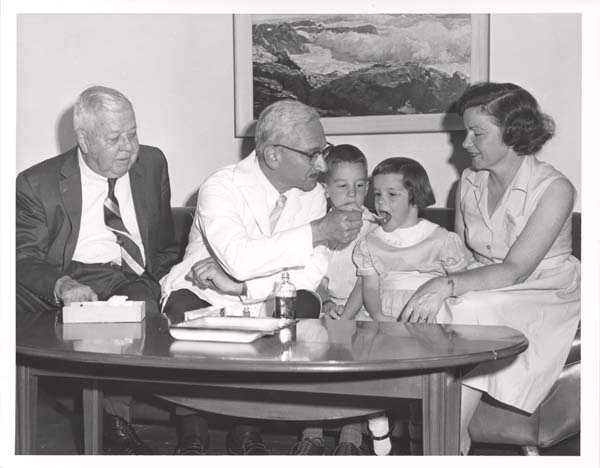By: Iman Said, Archives & Rare Books Intern for 2014-2015
 Hello again! The past few weeks, I have written about student life at UC and various aspects of campus that provide students with a well-rounded college experience. But UC is just one part of a huge community of Cincinnatians. Much of the work that is done on campus by our students, faculty, and staff have a significant impact on the entire city, and even the entire country. Being a student at UC makes it easy to forget that our CCM graduates go on to be Broadway stars, our MBA graduates are CEOs, and our medical students create new medicines and practices. These students succeed because of the outstanding faculty and staff who work for the university, many of whom actually have their own impact on the community.
Hello again! The past few weeks, I have written about student life at UC and various aspects of campus that provide students with a well-rounded college experience. But UC is just one part of a huge community of Cincinnatians. Much of the work that is done on campus by our students, faculty, and staff have a significant impact on the entire city, and even the entire country. Being a student at UC makes it easy to forget that our CCM graduates go on to be Broadway stars, our MBA graduates are CEOs, and our medical students create new medicines and practices. These students succeed because of the outstanding faculty and staff who work for the university, many of whom actually have their own impact on the community.
One of those faculty and staff members was a man named Albert Sabin. After graduating from New York University, he moved to Cincinnati Children’s Hospital Research Foundation where he began to research the root cause of the polio virus. He found that not only do polio viruses grow in the nervous tissue, they also live in the small intestine. He proved that polio is essentially an infection and could therefore be prevented by an oral vaccine.
His research was interrupted at that point by the beginning of World War II. Choosing to hold off on polio research, Sabin joined the US Army Epidemiological Board’s Virus Committee and traveled to Europe, Africa, the Middle East, and the Pacific where he developed vaccines for sleeping sickness, sand-fly fever, and dengue fever- three diseases that had previously reaped havoc on communities around the world.
When the war ended, Sabin returned to Cincinnati to resume his polio research. His goal was to identify a safe, live form of the polio virus that could be administered orally to prevent a person from becoming infected. After several experiments, one was developed and tested outside the United States in 1957. It was tested for another two years before it was brought back to the United States for testing and distribution on April 24, 1960, a day referred to as ‘Sabin Sunday’. On that day, families from all over the Cincinnati area lined up to receive the vaccine, which was administered as an oral medicine. The vaccine is still used in the battle to eradicate polio around the world.
Sabin’s career did not end with what became his signature mark on world health. After developing and disseminating the vaccine, Sabin served as President of the Weizmann Institute of Science and then worked as a consultant to the US National Cancer Institute. He was a Distinguished Research Professor of Biomedicine at the Medical University of South Carolina and a Senior Expert Consultant at the Fogarty International Center for Advanced Studies in the Health and Sciences of the national Institutes of health. He retired in 1986 at the age of 80 but continued to work part time at the Fogarty International Center as a Medical Science Advisor, and continued to lecture both in the United States and abroad. Sabin died in 1993, leaving behind an incredible legacy. Besides his contributions to medicine, he was an advocate for peace and argued that poverty and ignorance could be solved through mutual trust and international cooperation. He was a scientist, a humanitarian, and a remarkable Cincinnatian.
Sabin’s archives are voluminous, and are held in UC’s Henry R. Winkler Center for the History of the Health Professions on East Campus: http://rave.ohiolink.edu/archives/ead/OhCiUWC0012. Additionally, many of the Sabin documents and photographs have been digitized and are available through the Digital Collections site: http://digital.libraries.uc.edu/sabin/. For more information on the Sabin archives, please contact the Winkler Center archivist, Doris Haag, at 513.558.5123 or doris.haag@uc.edu. For more information on the Winkler Center and its holdings, please go to the center’s website at: http://www.libraries.uc.edu/winkler-center.html.
To learn more about historical photographs in the University Archives, please contact the Archives & Rare Books Library at 513.556.1959, by email at archives@ucmail.uc.edu, or on the web at http://www.libraries.uc.edu/arb.html.


